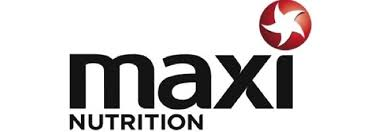Build exercise into your commute to and/or from work. Run, Cycle, Walk all or some of the journey. Get off the bus a stop early, park further from work, keep change of fresh clothes at work etc. Great for body and mind and saves money too.
Whey Protein Guide

The following is a concise and informative guide from 'Maxi Nutrition' which covers topics including why is protein in our diet important, how much protein do we need, when should we consume protein and the biological value of different proteins.
"Protein is an essential nutrient for life, responsible for numerous functions, like supporting the building of tissue, cells and muscle. Proteins are made from a collection of up to 20 amino acids. Of those, 8 are classed as essential, as they are cannot be made within the body and need to be sourced from the diet, and the other 12 are known as non-essential amino acids. They all collaborate in different ways to perform their duties in the body, so we need a good balance to keep healthy.
Why is protein important for muscle building?
Muscle growth relies on adequate proteins being available. That means a balance between protein intake and protein breakdown; something scientists call protein balance. To further explain, to achieve muscle growth an individual should combine weight training along with a positive protein balance; meaning that protein intake and synthesis is higher than protein breakdown. During a heavy weights session your muscles are forced into protein breakdown, with the body splitting the amino acids into energy or using them to synthesise new protein. Following training, to promote muscle growth this exercise-induced protein breakdown needs to be turned around to be positive – taking on extra protein is how you can do it.
How much protein do I need?
Research studies have identified that the upper limit for protein ingestion should be 2g per kg of body weight. Above this there is no evidence of further benefit to muscle growth. For an 80kg individual, the upper intake should be 160g protein per day to aid muscle growth.
Which form of protein is best?
Meat, fish, dairy, beans and nuts are all good sources of protein. Because of their amino acid make up, along with other nutrients they contain, like carbs and fats, they all have varying digestion rates. Food sources such as dairy, meat and fish all contain the ideal balance of the essential amino acids to support protein synthesis.
Proteins vary in their absorption rate within the body, based on their biological value (BV). BV is not a % but a value that takes egg as a constant at 100. Figure 1 shows a list of other protein sources and their BV. Whey protein – derived from the cheese making process - has a higher biological value than many foods, including fish, beef and soya. This means that more of the protein is actually used for muscle building by your body. It also contains high levels of essential and branched chain amino acids – which researchers think could be the most important for muscle. It’s fast to digest, and also convenient to prepare.
When should I take it?
To achieve the best results aim to spread your protein intake across the day. Recent research suggests that 20g consumed every three hours is superior for muscle protein synthesis to both smaller, more frequent amounts and larger, less frequent amounts (Areta et al, 2013, Journal of Physiology). Choosing your moment can affect the benefits. Taking a protein shake first thing in the morning is a good way to get essential nutrients after eight hours of sleep, and is great to have with your breakfast foods. A scoop or two of whey protein around an hour before sleep will be digested very slowly, fuelling your muscles all night as your growth hormones are elevated.
When you work out, it’s good to have a protein shake 30 minutes before your first rep to create an anabolic window – which lowers the damage to your muscles as you train. Making sure the shake has carbs in it will give you extra energy and also reduce exposure to muscle damage. A post-workout shake with some carbs in it is a good idea, as they cause an insulin spike in your body, which in turn helps other nutrients flood into your muscle tissue.
How quickly different proteins are absorbed?
The biological value of different proteins
Biological Value - in %
Whey Protein 104
Whole Egg 100
Fish 83
Beef 80
Chicken 79
Casein 77
Soya 74
You can see the full guide and article on the Maxi Nutrition website by following the following link: http://www.maxinutrition.com/nutrition/ingredients/protein/whey-protein-... "
High 5,
Matt
Personal Training Blog & Resources
-
On: 1 Nov 2016 - 16:05
-
On: 17 Jan 2021 - 05:53
-
On: 15 Jan 2020 - 16:09
-
On: 15 Jan 2020 - 15:42
-
On: 19 Jul 2019 - 19:20


Add new comment